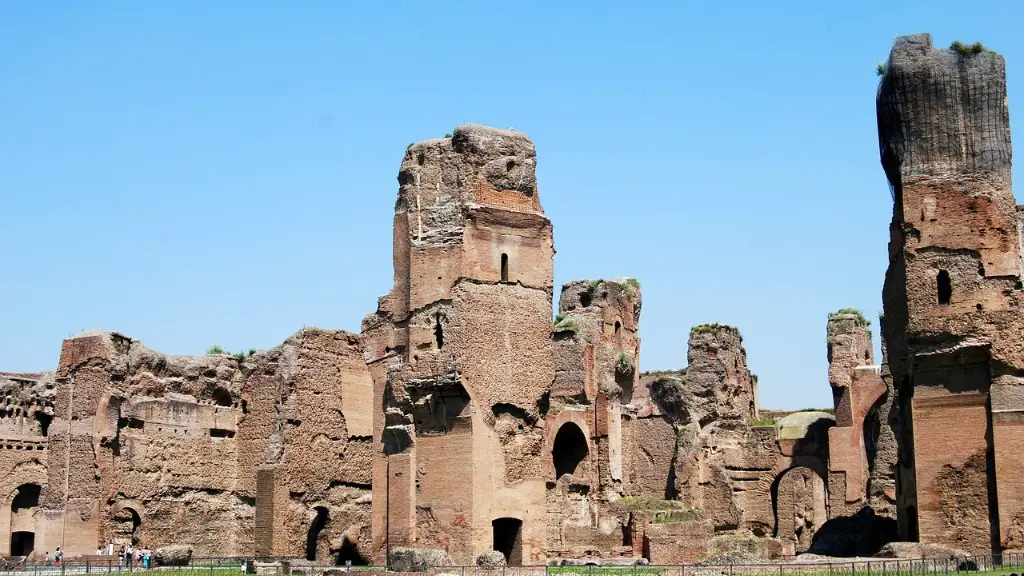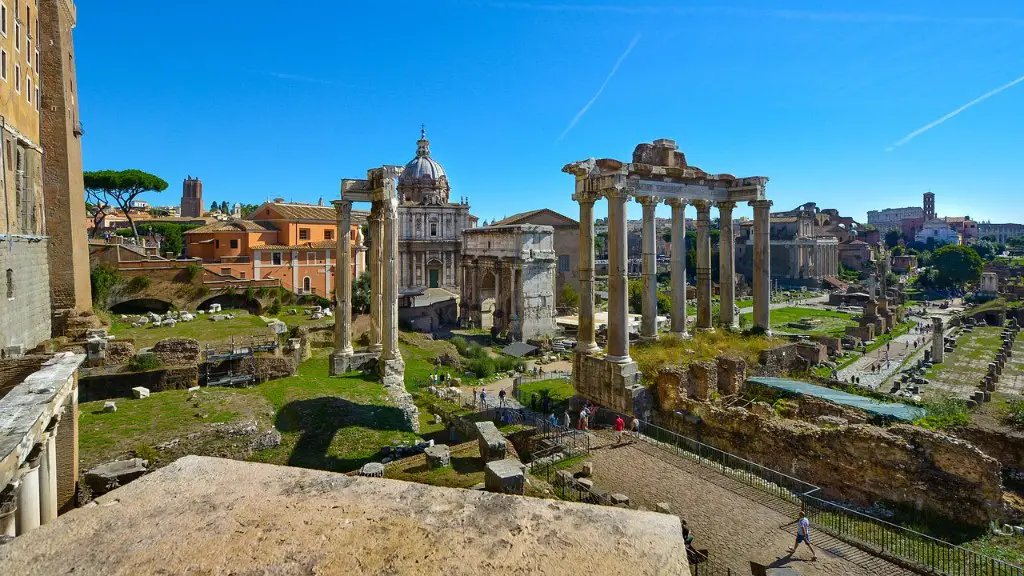In ancient Rome, a triumph was a public celebration held in honor of a military commander who had won a significant victory. The commander and his troops would parade through the streets of Rome, with the commander riding in a chariot, while the citizens cheered and threw flowers.
A triumph in ancient Rome was a public celebration in which a victorious commander was paraded through the streets in a ceremonial chariot, accompanied by his troops, musicians, and attendants.
Why was a Roman triumph important?
The Roman triumph was a very important event for the people of Rome. It was a time to celebrate their military victories, the courage of their soldiers, and the favor of the gods. These extravagant ceremonies were a way for the people to show their loyalty and support for their country.
The Triumph was a grand parade in ancient Rome led by a victorious military commander. It began with a procession through the city of Rome and ended with sacrifices at the Temple of Jupiter Optimus Maximus. Captives, spoils, animals, armor, and even models of battlefields were carried in the parade. The Triumph was a symbol of the commander’s power and a way to celebrate his victory.
What were Caesar’s 4 triumphs
This was an event of great importance to Julius Caesar, as it celebrated the end of four wars that he had been fighting. The event was also famous for its extravagance, as it was a lavish celebration with many different aspects to it. This included a parade of Caesar’s troops, as well as a display of the captured enemy leaders and their weapons.
The historical tradition of the Roman triumphal procession came to Rome from the Etruscans. The first triumphs were those celebrated by Romulus, the legendary founder of Rome himself. In later times, a triumph could be celebrated by any general who had won a significant victory in battle. A triumph was a highly elaborate affair, and the victorious general would ride through the streets of Rome in a grand procession, accompanied by his troops and a huge entourage of musicians, dancers, and other performers. The procession would end at the Temple of Jupiter on the Capitoline Hill, where the general would offer sacrifices to the gods and give thanks for his victory.
How many triumphs did Caesar have?
Rome celebrates Julius Caesar’s unprecedented four triumphs with city-wide parties, the highest honor a military commander could receive.
The training that soldiers had to do was very tough and thorough and included marching 20 miles a day wearing full armour. This meant that the Roman armies were very fit and organised. Training included marching in formation and learning specific tactics and manoeuvres for battle.
When was the first Roman triumph?
On this day in 752 BC, Romulus, the first king of Rome, celebrates his first triumph. A triumph was a major public celebration in ancient Rome, and it was a great honor to be able to celebrate one. This triumph is a significant moment in Roman history, and it is a day that is still celebrated today.
A commander who received an ovation from his legion was honored with the title of imperator. The general would then send a tablet and laurel wreath (symbolic of victory at the great Olympic Games) to the Roman senate.
What are Caesar’s last 3 words
Although we cannot know definitively what Caesar’s last words were, it is clear that the Shakespearean version (“Et tu, Brute?”) has become the most popular and well-known. This may be because it captures the betrayal and betrayal felt by Caesar in his final moments, as he was assassinated by his close friend Brutus. Whatever the case may be, Shakespeare’s version of Caesar’s last words has stood the test of time and remains the most commonly known.
This is one of the most famous phrases in Latin, and it perfectly encapsulates the Roman attitude towards warfare. The phrase is attributed to Julius Caesar, who is said to have used it to describe his defeat of Pompey in the Battle of Pharsalus in 48 BC. This was a particularly significant victory for Caesar, as Pompey had been one of his main rivals for power in Rome. The phrase has since been used to describe many other rapid and decisive military victories.
What is the meaning of the word triumphs?
In order to obtain victory, one must first prevail. To receive the honor of a triumph, one must celebrate victory or success in a boastful or exulting manner.
Claudian’s panegyric to Emperor Honorius records the last known official triumph in the city of Rome and the western Empire. Emperor Honorius celebrated it conjointly with his sixth consulship on January 1, 404; his general Stilicho had defeated Visigothic King Alaric at the battles of Pollentia and Verona. This event was significant because it marked the last time that a Roman Emperor was able to triumph in the city of Rome – and indeed, the western Empire. After this point, the Empire began to crumble, culminating in its eventual fall.
Who was the most ruthless Caesar
Emperor Caligula was one of the cruelest rulers in history. Shortly after he came to power, he became ill with what many believe was syphilis. He never recovered mentally and became a ruthless, wanton killer of Roman citizens, including even his own family. No one was safe from his wrath.
Caesar Augustus was an incredibly successful leader who is credited with transforming Rome from a republic to an empire. He is well known for restoring peace and prosperity to the Roman state and changing nearly every aspect of Roman life. Augustus was a true visionary and his legacy continues to influence the world today.
Why were Roman soldiers so feared?
The Roman Army was one of the most successful in the history of the world and its soldiers were rightly feared for their training, discipline and stamina. As a result, the army was a major player in Roman politics and maintaining its loyalty was an essential task for any Emperor. The Roman Army was so successful in part because of the strong loyalty of its soldiers. The soldiers were well trained and disciplined, and they had a strong sense of loyalty to the Roman Empire. This loyalty was a major factor in the success of the Roman Army.
A Roman soldier was known as a legionary and the army was divided into large units called legions. Each legion was split into smaller groups, called centuries, each consisting of 80 men. Their commanders were known as centurions.
Conclusion
A triumph in ancient Rome was a public celebration in honor of a victorious commander, usually held in the commander’s home city. The commander would be paraded through the streets in a triumphal procession, followed by his troops, and the event would conclude with a public feast.
A Roman triumph was a public and lavish procession held to celebrate a military commander’s conquest. It was one of the most important and prestigious events in Roman society.




